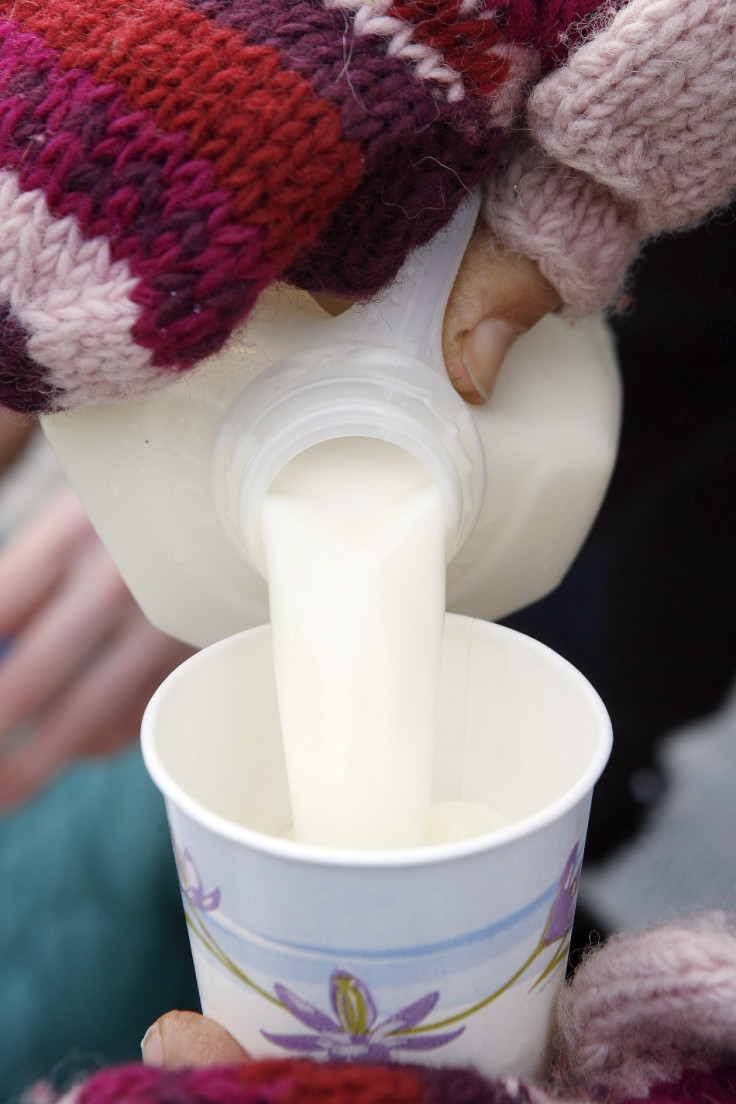Ministers to Meet Dairy Farmers over Protest against Milk Price Cut
Talks to focus on long-term future of industry

As the UK dairy farmers' protest against recent price cuts continued for a second day, ministers have agreed to meet the farmers to discuss their demands.
Farming Minister Jim Paice and Environment Secretary Caroline Spelman will hold talks with the farmers on Monday in Powys.
The talks will centre on the long-term future of the industry and discuss changes in the supply chain mechanism, reports the BBC.
Meanwhile, Co-operative Food has announced that it will raise the price it pays for milk.
The dairy farmers have blocked milk processing plants in protest at price cuts of up to 2p per litre. Hundreds of farmers in tractors participated in the protest on Friday night.
According to farmers' figures, the recent cuts leave them with 24p per litre against their production cost of 29-30p per litre.
According to the protest group Farmers For Action (FFA), the cuts in the rates paid to suppliers, coupled with rising feed costs, could easily put many farmers out of business, pushing Britain to import milk from other countries.
Such a collapse in the farming industry would hit both the local economy and the ecosystem, the farmers say.
"These price cuts are a severe blow for dairy farmers. Government cannot and should not set prices but I will do everything in my power to get all levels of the supply chain to make the real changes needed to guarantee the industry's long-term future," Paice was quoted as saying by the BBC.
The farming minister also urged farmers and processors to work together in accordance with industry codes. He also urged retailers to concentrate more on long-term practices rather than on unsustainable short-term aims.
Demonstrations took place in many of Britain's rural areas, including Derbyshire, Somerset, Yorkshire, Leicestershire and Worcestershire.
In the wake of the protests, Co-operative Food has promised to increase the price it pays for milk in order to benefit farmers.
"We have a track record of supporting British farmers, and we recognise the importance of ensuring a long-term, sustainable future for British dairy farmers. We have been in continual discussions on this issue with the National Farmers Union and we have listened to their concerns," said Steve Murrells, the chief executive of Co-operative Food, according to WalesOnline.
© Copyright IBTimes 2025. All rights reserved.




















